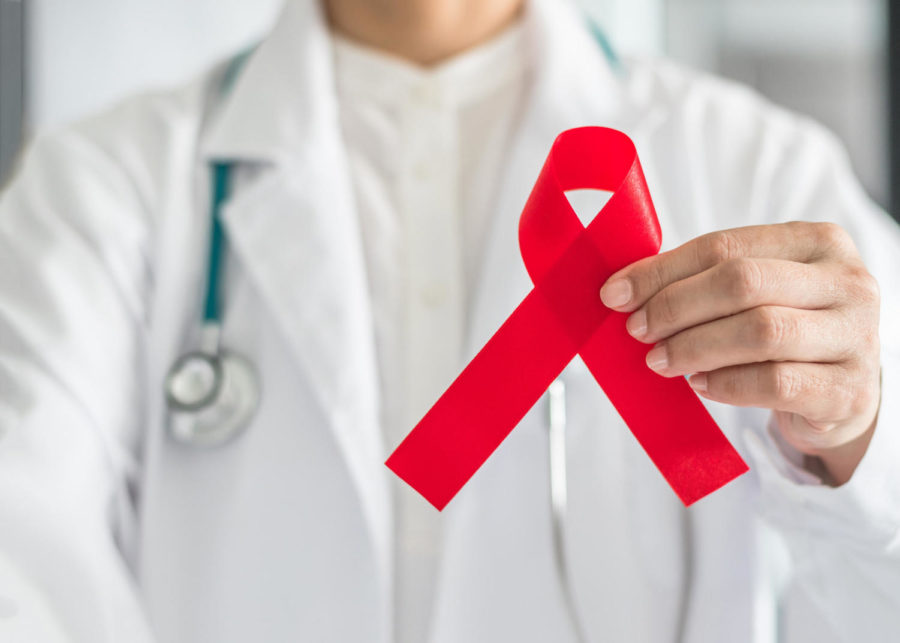World AIDS Day 2021
November 30, 2021
Nearly 1.2 million people in the United States suffer from HIV, which can turn to AIDS over time if it is left untreated, according to the CDC. Of these people, only 87 percent, about 150,000, knew they had HIV.
To help raise awareness for HIV/AIDS, World AIDS Day has been celebrated Dec. 1 every year since 1988. This day acts as a support for those who have this disease and remembrance to those who have died from it.
The AIDS pandemic started in the early 1980s; many people have the misconception that this disease is spread through homosexual physical relations. While men who have sexual contact with other men have the highest risk of contracting HIV/AIDS, anyone who is sexually active or injects drugs could be at risk. According to the CDC, in 2019, 65 percent of cases came from male-to-male sexual contact, 23 percent from male-to-female contact, 7 percent from injected drug use and 4 percent from a combination of male-to-male sexual contact and injected drug use.
Since this disease is mostly passed from sexual contact, according to Laura Moeller, a family physician at Thielen Student Health Center, it is important to teach children and young adults about safe sex, their bodies and STIs to help prevent HIV/AIDS.
“I think it’s integral for young people to be fully informed of STI protection and contraception, so they can make healthy choices impacting their bodies and the health and wellness of those around them in our community, too,” said Moeller.
According to Moeller, sex education should first start being taught to students as early as elementary and middle school. She believes that being taught terminology for body parts, personal safety and what constitutes as sexual abuse should be first taught at this time and repeated through high school and college.
Teaching sex education from reliable sources increases the chances of students receiving accurate information instead of learning things on their own that may not be true.
Asking new sexual partners uncomfortable questions about their sexual history may seem unnecessary or odd to many people. However, these can be extremely important in the prevention of spreading HIV/AIDS. Moeller gave the examples such as the number of sex partners an individual has had if they have snorted or injected drugs, been incarcerated or have exchanged sex for drugs or money.
Along with these questions, she also gave insight into what extra measures primary care providers take that are necessary to treat HIV patients since they are immunosuppressed and at higher risk of infection. These include frequent pap testing, skin cancer screenings and administering vaccines. While it may be difficult to discuss potentially having HIV/AIDS with doctors, it is crucial for them to know their patients’ medical conditions to treat them properly.
Even though most cases of AIDS are reported from patients over the age of 30, 1 in 500 college students in the U.S. has HIV, according to BMC Public Health.
Thielen Student Health Center offers students access to sexual health resources, including HIV/AIDS testing.







